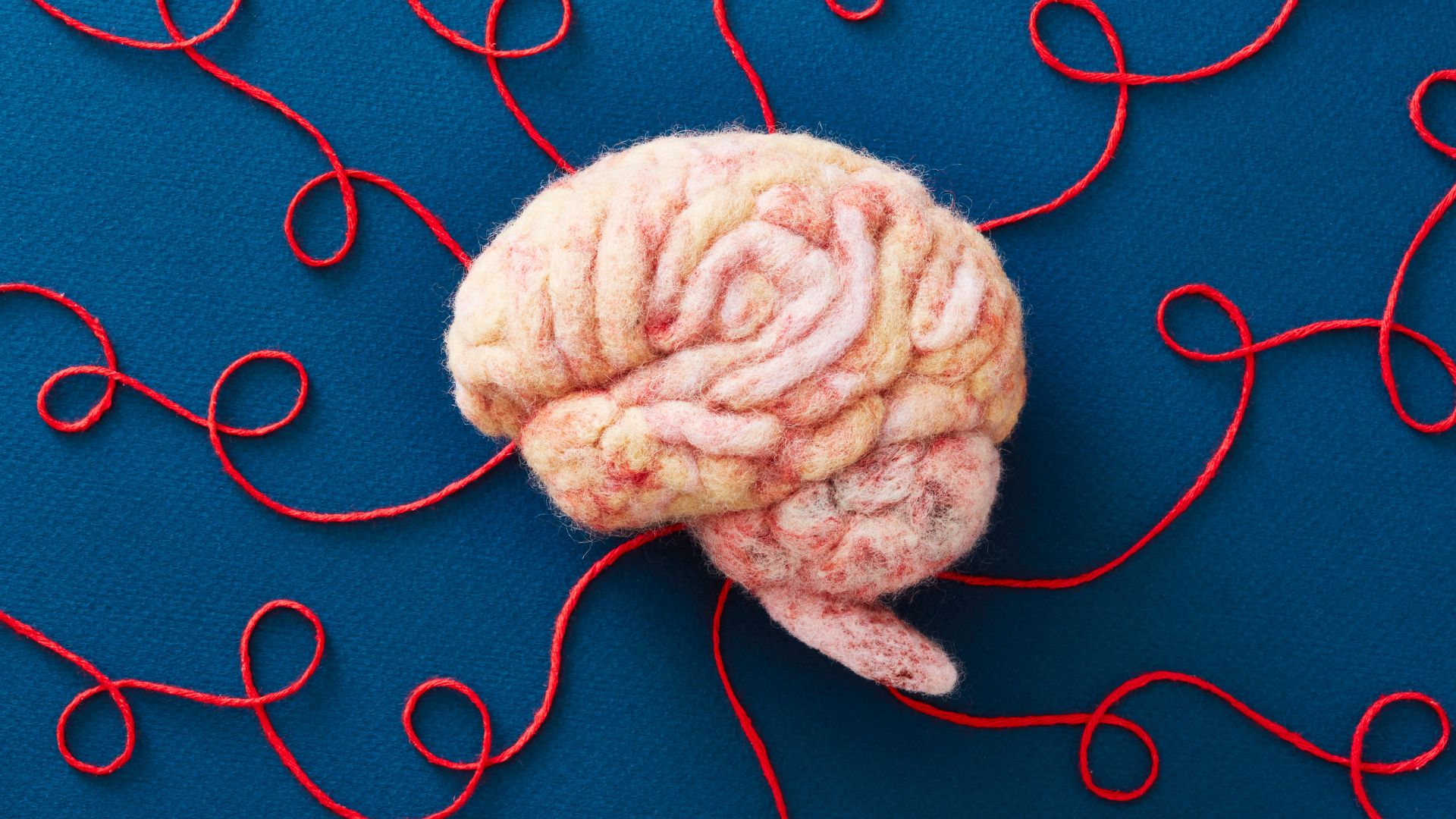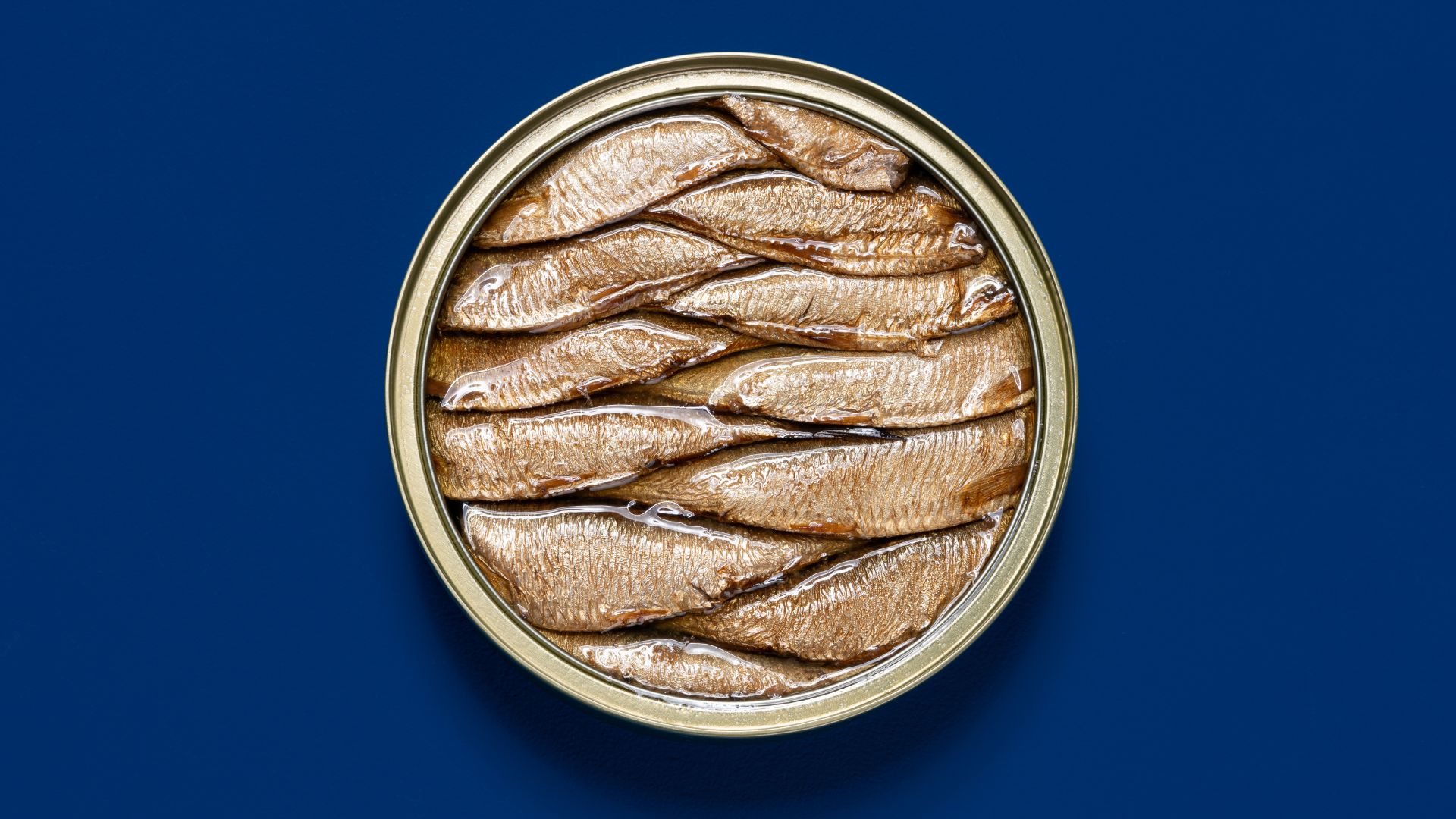I’m a neuroscientist - these are the 9 simple ways I care for my brain every day
Brain experts share their most effective tips for looking after your grey matter with small everyday habits, from food and movement to mindfulness and sleep


Sign up to our free daily email for the latest royal and entertainment news, interesting opinion, expert advice on styling and beauty trends, and no-nonsense guides to the health and wellness questions you want answered.
You are now subscribed
Your newsletter sign-up was successful
Want to add more newsletters?
Be honest, do you give your brain the attention it deserves? After all, it is your brain that is responsible for everything you do, from breathing and moving to thinking and feeling.
By maintaining a healthy brain and trying to improve your brain health, you reduce the risk of cognitive decline and neurodegenerative conditions, enjoy better mood regulation, and experience enhanced physical wellness, as the brain regulates vital bodily functions. Ultimately, learning how to take care of your brain means leading a more productive, fulfilling and independent life, something that feels particularly pertinent as we age.
Although one in three people born in the UK will develop dementia in their lifetime, and we're not sure what causes it, 40% of dementia cases could be prevented or delayed by combating common risk factors. For instance, we can't control non-modifiable risk factors, like our age or our genes, but we can make conscious decisions about what we consume and how much we move each day, known as modifiable risk factors.
The good news is, we are never too old to make impactful changes. Neuroplasticity, the brain's ability to adapt and change, never stops, provided we give it the chance to stay active.
“Your brain doesn’t know the difference between right and wrong. It knows what’s been repeated, and neuroplasticity thrives on repetition at its most fundamental, basic formula," explains Nicole Vignola, a neuroscientist and the author of Rewire: Your Neurotoolkit for Everyday Life. "This can work in our favour because the brain likes consistency and the best way to achieve that is through small daily adjustments."
So, what do these everyday adjustments look like? I've quizzed neuroscientists on what they do to care for their brains every day.
How to take care of your brain
1. Do just 20 minutes of exercise a day
There are benefits to exercise that extend beyond the physical, the experts remind us. "If you're trying to change your habits, you want a brain that's nice and malleable," says Vignola, who champions aerobic exercise for brain health.
Sign up to our free daily email for the latest royal and entertainment news, interesting opinion, expert advice on styling and beauty trends, and no-nonsense guides to the health and wellness questions you want answered.
“When we engage in aerobic training, the brain releases brain-derived neurotrophic factor (BDNF), a little protein that helps the synapses stay strong and helps them grow. Think of BDNF as fertiliser for the brain," she explains.
While a study suggests that cycling could be the best exercise for brain health, the key is consistency, and so it's most important to do something you enjoy. "The key is finding something you look forward to doing, whether it's cycling workouts, swimming, running, brisk walking or dancing," says Dr Caitlin Hall, a neuroscientist and registered dietitian.
Once you find your favourite workout, you'll reap the benefits as you'll do it more often and learn how to take care of your brain through movement. "Exercise increases blood flow to the brain and boosts mood-lifting chemicals like serotonin and dopamine. It even helps grow new brain cells in areas like the hippocampus, which is linked to memory," says Dr Hall.

Nicole Vignola is a neuroscientist, keynote speaker and the author of Rewire. With an Instagram following of over 500k, she is known for sharing practical tools and scientifically proven methods to enhance mental wellbeing.

Cycling has proven links to a lower risk of disease.
2. Pick up some weights
Aside from aerobic exercise, Vignola recommends weight training, which can include weighted movements with kettlebells, barbells, and dumbbells.
“We don't often think of our brains as a muscle, but they can definitely be exercised like one," she says. "Resistance training helps regulate our emotions, reduce anxiety and stress over time, and stave off cognitive decline."
A lifting session two to three times a week is ideal, she adds, as "that helps to increase the grey matter volume of the brain."
This type of workout, which can also include functional fitness exercises and callisthenics for beginners if you don't have access to weights, will also help with blood sugar regulation and hormone support, adds Dr Hall.

Dr Caitlin Hall is a neuroscientist (and gut health dietitian) specialising in the gut brain axis and women's health.
3. Give yourself permission to disconnect
These days, we can make an online order while binging a TV series, doomscroll on social media when stuck in a queue, and Google random questions when sleep eludes us. Smartphones also equate to a continual barrage of stressful ‘noise’ from rolling news cycles to incessant emails, which also keeps us in a state of continual alertness.
“Chronic stress is one of the most damaging yet underestimated threats to brain health. It keeps cortisol levels high, which over time can impair memory, affect emotional regulation, and even reduce the volume of the hippocampus, a critical region for memory and learning,” says Dr Inmaculada Rodríguez Ulecia, a specialist in neurophysiology and sleep medicine from the TEMPO Sleep Science programme at Salobre Gran Canaria.
“Throughout the day, I intentionally avoid constant overstimulation and permit myself to disconnect," she says. "Sometimes it’s as simple as closing my eyes for a few minutes and focusing on my breath. I also take daily walks without my phone or headphones, which gives my mind space to decompress and process."
Rather than a full mindfulness routine, these small habits may be particularly beneficial. "Reducing unnecessary demands, embracing quiet moments, and cultivating calm can have a profound effect on mental clarity and long-term brain resilience," she adds.

Dr Inmaculada Rodríguez Ulecia is a leading Clinical Neurophysiologist and specialist in sleep medicine, known for her work in diagnosing and treating complex neurological sleep disorders.
4. Chew your food
As the saying goes, you are what you eat, so aim to include as many components of the best diet for brain health as possible. “What you eat literally becomes part of your brain,” says Dr Hall, who works with Myota as a specialist in the gut-brain axis and women's health.
"The brain is made up of about 60 per cent fat, and it needs a steady supply of nutrients to work well," she explains. "I also try and chew my food well. It sounds small, but chewing stimulates brain activity and supports digestion."
5. Choose the right snacks
Whether you're looking for something to start your day or a way to get through the 3 pm slump, there are certain foods you can include in your snack pack that make for great brain fuel.
When planning meals and snacks, Dr Hall tries to prioritise the following:
- Prebiotic fibres: These help produce butyrate, which is a type of short-chain fatty acid. "Butyrate has been shown to interact with the gut-brain axis by interacting with the vagus nerve or with the blood-brain barrier, and reduces systemic inflammation," says Dr Hall. "You can find prebiotic fibre in garlic, onions, artichokes, leeks, oats, green bananas, or a good fibre supplement."
- Omega-3-rich foods: Oily fish like salmon, sardines, or mackerel help protect the brain structure, she says. "Opt for an Omega-3 supplement (especially EPA and DHA) if you don’t eat much oily fish."
- Colourful plant foods: "Eating a wide variety of colourful plant foods is one of the best ways to feed your brain. Include colourful fruit and veg, especially berries, leafy greens, and red cabbage, for antioxidants.”
- Dark chocolate: In moderation, dark chocolate is known for its natural compounds that support mood and focus, she says.
6. Prioritise water
Given that our bodies are made of about 60% water, it makes sense that depriving the brain and body of sufficient hydration is detrimental, but "even a little dehydration can affect memory, mood, and energy levels," says Dr Hall.
"Try to drink around 6 to 8 glasses of water a day, more if you're active or drinking caffeine. Herbal teas and water-rich foods, like cucumber and berries, also count," she adds.
“While hydration powders and electrolytes are really popular at the moment, most are overpriced mixes of sugar, sweeteners and salt (the very thing people are trying to avoid)," she warns. "That’s not to say they don’t have their place, e.g. if you’re dealing with diarrhoea, vomiting, or are sweating heavily, but for most of us, we simply don’t need it.”

Oily fish like mackerel, sardines, and anchovies are rich in omega-3 fatty acids.
7. Focus on finding joy
Not only does chronic stress raise cortisol, but over time, it can disrupt memory, mood, and sleep. “It also affects the gut, which plays a big role in brain health,” says Dr Hall. As mentioned, being aware of your online use and reducing it is important, but so is integrating simple, daily habits.
“Try deep breathing or meditation for a few minutes each day, take a walk outside, ideally in nature (forest ‘bathing’ has been shown in studies to lower blood pressure) or just do something fun, like listening to music,” adds Dr Hall.
“Laughter, dancing, creativity. These are not luxuries. They are vital for a healthy, resilient brain. Even a few minutes of daily stress relief can calm your nervous system and support brain health over time," she says.
It's also important to keep up fulfilling friendships and family relationships. "Staying socially connected is one of the strongest predictors of long-term brain health," she says. "Even short, regular social moments help. It doesn’t have to be anything formal. Chatting with a friend, laughing, or being part of a group stimulates memory, attention, and emotional resilience."
8. Stay curious
The brain thrives on novelty, challenge, and curiosity. “Cognitive stimulation keeps the neural networks engaged and flexible, and it’s a vital factor in preserving cognitive health as we age,” notes Dr Rodríguez Ulecia.
“After 40, the brain still has remarkable plasticity, but it needs stimulation to stay sharp. I try to learn something new every day, even something small. I enjoy reading articles outside my speciality in areas like psychology, technology, or the arts. Exploring unfamiliar topics keeps my thinking flexible and energised,” she says.
You could visit a museum or art exhibition, take a foodie tour in your local town or city, sign yourself up for a four-week language course, try a pottery class or download trivia apps. It all counts.
“I often tell my patients: it’s not about doing something complicated, it’s about staying curious. Whether it’s a new hobby, a creative pursuit, or learning a language, what matters is stepping outside your usual mental patterns," says the neuroscientist.
9. Prioritise sleep
It's no surprise to hear sleep is one of the brain’s most vital functions. “During deep sleep, the brain clears out toxins, consolidates memories, and restores emotional balance. When sleep is consistently poor, it doesn’t just affect mood or concentration. Over time, it increases the risk of cognitive decline and neurodegenerative diseases like Alzheimer’s,” says Dr Rodríguez Ulecia.
“A common mistake I see is irregular sleep patterns like staying up late on weekends or trying to ‘catch up’ on missed sleep, which disrupts the circadian rhythm," she says. Again, overuse of screens in the evening is another issue, as blue light delays the body’s natural production of melatonin.
“Personally, I prioritise my sleep routine. I avoid screens at least an hour before bed, have a light and early dinner, and practise deep breathing exercises to calm my nervous system.
“As you age, I strongly recommend becoming aware of hormonal changes, particularly in perimenopause, as they can subtly affect sleep architecture. Learning how to sleep better with good sleep hygiene, consistency, and in some cases medical advice, is key at this stage of life," she says.
A journalist with two decades of experience, Susan interviewed A-list names in film and TV before going freelance and focusing on health, wellbeing, and lifestyle features. She has since spoken to world-renowned experts on the most innovative and effective ways to look after your mind and body; her work appearing in publications such as Daily Express, Daily Mirror, Metro, Fabulous and The Telegraph. When Susan isn’t working on her laptop, she is most content hiking in the Peak District or finding quiet camping spots to while away a weekend and knows first-hand the restorative benefits of being outdoors.
You must confirm your public display name before commenting
Please logout and then login again, you will then be prompted to enter your display name.
